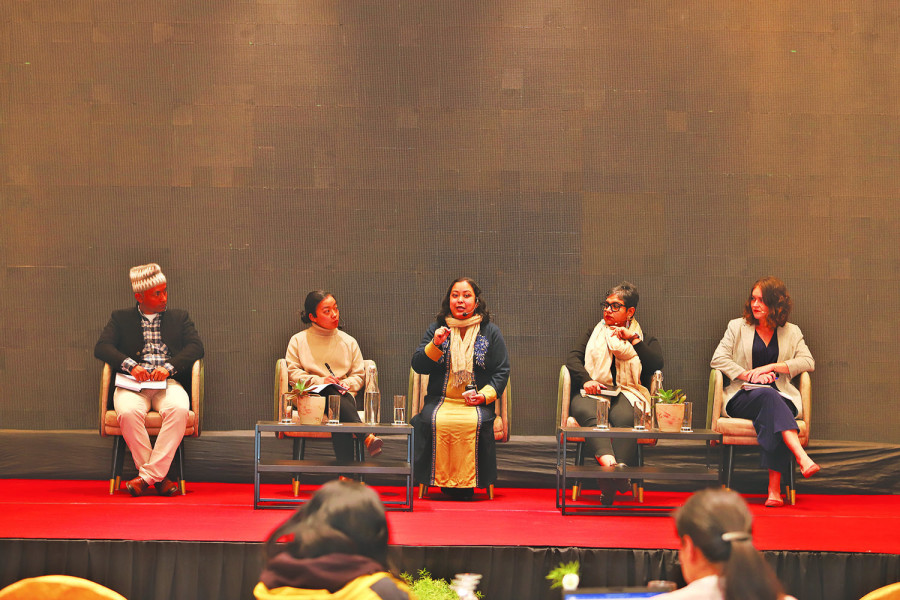Entertainment
A visual intersection of women and climate change
Bahav, a documentary by FES, explores the water-related crisis caused by climate change and its impact on women’s livelihood.
Post Report
Bahav (Flow), a documentary exploring the intersections of women and climate change in Nepal, specifically looking at the impact on water, had a screening at Square Hotel, Lalitpur on Thursday.
Produced by FES (Friedrich Ebert Stiftung) Nepal, a German organisation working on strengthening democracy and social justice, this 11-minute-long documentary was a film made in collaboration with Katha Haru, a production house based in Kathmandu.
“To address these climatic problems in a policy-making process, it was necessary to amplify the voices of the locals,” says Jonathan Menge, resident representative of FES Nepal.
Bahav takes the audience on a journey outside Kathmandu and gives us a glimpse of the despair and hope these women face. Featuring locals from Bardiya in Tarai, and Jumla in Himalaya region, the documentary looks into the lived realities of women there, the impact climate change has had in their livelihood and how they are navigating their lives through it.
“The places featured in the documentary were shortlisted after an intensive research on the places that are highly vulnerable when it comes to water-related crisis,” says Priyanka Kapar, Program Officer at FES Nepal.
The event started with a photo exhibition titled ‘Faces of Himalayas and the Plains’ reflecting the livelihood of people living in Bardiya and Jumla. The screening of the documentary was followed by a panel discussion on ‘Intersections of gender and climate change’ moderated by the journalist Marissa Taylor who extensively covers climate change and featured Camile Pross, research associate at the Stockholm Environment Institute (SEI) Asia, Shweta Narayan, international climate and health campaigner, Shweta Dhoubadel, knowledge management professional, and Pankaj Bahadur Shahi, a Jumla resident working with Karnali Integrated Rural Development and Research Centre (KIRDARC Nepal) as the panelists.
The panel discussion centered around the impact of climate change on women—particularly in South Asia— as the panelists concluded that there are similarities of climate change crisis all around the South Asian region than differences.
“This documentary puts the human face to the impacts of climate change. The mal-development practices in these developing countries has fuelled the climate crisis leaving the disadvantaged and marginalised communities the most vulnerable,” says Pross.
Narayan echoes Pross’ thoughts stating, “This is the story of South Asia. Only the names of locals and regions change, the problem is the same.”
Emphasising the importance of the participation of women and local residents in the policy-making process of climate change policies and water resources policies, the panel ended with a discussion on strategies to make women and locals more resilient towards the climate crisis.
The documentary will be available on Youtube from January 19.




 14.24°C Kathmandu
14.24°C Kathmandu









